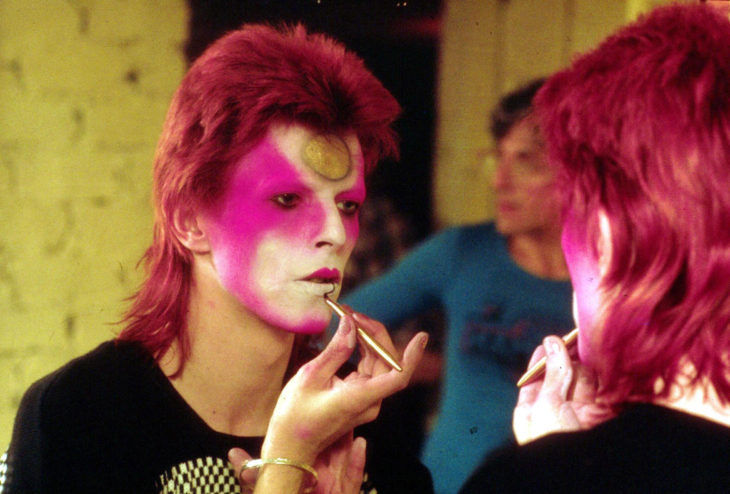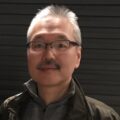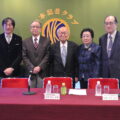David Bowie and his love of Japan: A Man Who Saw the Future

When David Bowie visited Japan in 1973, he was inspired by kabuki stage makeup. He made up his face with cherry-colored cheeks and cupid lips on the following U.S. tour. Bowie’s fading red eye-shadow makeup became popular around the world.
PHOTO: Shutterstock/AFLO
I believe that the first time I met David Bowie was in April 1973, when he came to Japan for his first tour here. Bowie was 26, and I had just turned 23. The memory is a little indistinct, but I think he told me that he wanted to see me putting on make-up. He came to my dressing room, sat behind me, and watched me intently as I did my face. The red shading off around my eyes must have seemed unusual to someone from abroad.
Actually, around that time other artists from England, including Emerson, Lake & Palmer, also came to see me on stage. And at the time I did wonder why. They came from Britain, a country which places importance on forms and appearances. But, thinking back, as well as recognizing kabuki as a classical form, they must have picked up on its aura of “performance.” Unlike in classical noh, onnagata (a male actor playing a female role) powerfully draws the attention of the audience. Yet kabuki is still a traditional form. I think that these artists from Britain were attracted by that.
Bowie wanted to eat in a Japanese-style restaurant, so we dined at the Hanya-en, a Japanese restaurant that was the setting for Mishima Yukio’s novel After the Banquet, and which was used to entertain foreign VIPs. I remember how we sat in a large room surrounded by a corridor with sliding screens containing delicate pre-war glass, and how the three of us, myself, Bowie and the designer Yamamoto Kansai, leisurely enjoyed the Japanese meal. When I am on stage I wear showy costumes and make up, but in daily life I try to wear ordinary clothes. (You could call it the sacred and the profane.) Bowie at that time, however, dressed as a stylish rock star even off stage. I wondered if he ever got tired of that style.
We must have talked about his impressions of my performance, though I remember very little about that. But there is a part of the conversation that has stuck in my memory. The three of us, who were still in our twenties, started to chat about the future of the arts, performance, fashion, and how the world would change. That’s when Bowie said, “In ten to fifteen years from now, a time will come when almost everything in the world will be seen only as phenomena.” His prophecy went as follows: “In other words, say that there was a car accident. Right now we feel it as tragic and heart-breaking news, but a time will come when it is only considered a phenomenon.”
In fact, that is exactly was happened in the 1990s and 2000s. I don’t know how he arrived at that conclusion, but his words made a huge impression on me at the time. Most of what he said was connected with art, but this was about the world in general, and we must have discussed what we should do about it. As I gazed at the outside world through the windows of the Hanya-en, I wondered how this man could reach such a cruel conclusion. Yet, even then I understood how, as well as being a rock musician, Bowie could see through the past, present and future. This is a memory from right back in the past, but the conversation of that day remains enormously important to me.
Translated from “David Bowie and his love of Japan: Mirai no yogensha (David Bowie and his love of Japan: A Man Who Saw the Future),” FUJINGAHO, February 2017, pp. 122-124. (Courtesy of Hearst Fujingaho Co., Ltd.) [February 2017]



